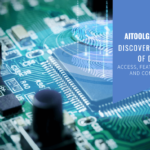ChatGPT, the AI chatbot from OpenAI, has taken the world by storm since its launch in November 2022. This language model has revolutionized how we interact with machines, enabling natural conversations and transforming industries.
In just five days, ChatGPT gained a million users, and within two months, it hit 100 million active users – making it the second fastest-growing consumer app ever.
By November 2023, it boasted 100 million weekly users. The chatbot’s ability to understand context, generate human-like text, and tackle complex tasks has sparked a new era in AI technology. From writing essays to coding and customer service, ChatGPT’s impact is far-reaching.
As we dive into ChatGPT’s journey from a research project to a global phenomenon, we’ll explore how this AI powerhouse is reshaping our digital landscape and pushing the boundaries of what’s possible with machine intelligence.
The Foundations of ChatGPT
OpenAI, the brainchild behind ChatGPT, was born in 2015 with a big dream: to make AI that helps everyone. Founded by Sam Altman, Elon Musk, and others, this San Francisco-based lab set out to create safe and beneficial artificial general intelligence (AGI). They wanted AI that could outdo humans at most jobs, but in a way that’s good for all of us.
The game-changer came with the transformer architecture, a fancy way computers understand the language better. It’s like giving AI a super-smart brain for words!
This breakthrough led to the creation of GPT models, which are the building blocks of ChatGPT. Let’s look at how these models grew up:
GPT-1 (2018): The firstborn, with 117 million brain cells (parameters). It was pretty smart for its time, learning from books to guess the next word in a sentence.
GPT-2 (2019): The middle child, with 1.5 billion brain cells. This one was so good at writing that people worried it might be used for bad stuff. It could write whole paragraphs that made sense!
GPT-3 (2020): The big kahuna, with a whopping 175 billion brain cells. This AI could do all sorts of cool tricks, like writing stories, answering questions, and even helping with computer code.
Each new GPT was like a bigger, smarter version of the last one. They learned from tons of text on the internet, getting better at understanding and creating human-like language.
This journey from GPT-1 to GPT-3 set the stage for ChatGPT, the chatbot that’s now taking the world by storm
The Birth of ChatGPT
OpenAI took a big leap forward with InstructGPT and GPT-3.5. These models were like the cool older siblings of ChatGPT. They learned to follow instructions better and chat more naturally with humans.
This was thanks to a neat trick called Reinforcement Learning from Human Feedback (RLHF), which helped the AI understand what people really wanted.
On November 30, 2022, ChatGPT burst onto the scene like a firework. OpenAI released it as a “research preview,” but boy, did it make a splash! People could finally chat with an AI that seemed to get them. It was like having a super-smart buddy who knew a ton of stuff. The world went wild for ChatGPT.
It was love at first chat! In just five days, a million people signed up to try it out. That’s faster than it takes most of us to decide what to watch on Netflix! By January 2023, ChatGPT had a whopping 100 million monthly active users. Talk about going viral!
Folks were amazed by what ChatGPT could do. It wrote poems, explained tough topics, and even helped with homework (though that last one got some teachers worried). People shared their coolest ChatGPT conversations online, and soon everyone wanted to give it a whirl.
But it wasn’t all smooth sailing. Some people pointed out that ChatGPT sometimes made stuff up or got facts wrong. These “hallucinations” showed that while the AI was smart, it wasn’t perfect.
Still, ChatGPT’s success was huge. It kicked off an AI boom, with big tech companies racing to catch up. Google even called a “code red” to step up their game. ChatGPT had changed the game, and the world of AI would never be the same!
Technical Advancements and Innovations
ChatGPT has some pretty cool tricks up its sleeve! Let’s check out how it got so smart.
Reinforcement Learning from Human Feedback (RLHF)
RLHF is like giving ChatGPT a high-five when it does a good job. Here’s how it works:
ChatGPT says something.
Humans rate how good it is.
ChatGPT learns from these ratings and gets better.
This helps ChatGPT talk more like a real person. It’s like teaching a robot to be your buddy!
Natural Language Processing Improvements
ChatGPT is getting better at understanding us. It can now:
Get the context of what we’re saying
Figure out tricky words with multiple meanings
Understand emotions in our messages
It’s like ChatGPT is learning to read between the lines!
Tackling Limitations and Biases
Even smart AIs can make mistakes. ChatGPT is working on:
Reducing bias: Making sure it’s fair to everyone
Fixing “hallucinations”: Sometimes ChatGPT makes stuff up. Oops!
Staying up-to-date: ChatGPT’s knowledge has a cut-off date, but it’s trying to stay current
OpenAI is always tweaking ChatGPT to make it better. They’re like mechanics, always fine-tuning their robot! These improvements are making ChatGPT more helpful and trustworthy.
It’s not perfect yet, but it’s getting there. Who knows? Maybe one day, chatting with AI will be as normal as texting your bestie!
Key Milestones in ChatGPT’s Development
ChatGPT has been on a wild ride since it first showed up! Let’s check out some of its biggest moments.
Reaching 100 Million Users
ChatGPT became a superstar faster than you can say “AI”! It hit 100 million monthly users in just two months after launch.
That’s quicker than TikTok or Instagram ever did! People couldn’t get enough of this chatty robot. By November 2023, it was chatting with 100 million folks every week. That’s like talking to everyone in California and Texas combined!
ChatGPT Plus: The VIP Experience
In February 2023, OpenAI rolled out the red carpet with ChatGPT Plus. For $20 a month, you get:
Faster chats (no more twiddling your thumbs!)
First dibs on cool new stuff
Chat even when it’s super busy
It’s like having a FastPass at an AI theme park!
GPT-4: The Brain Upgrade
March 14, 2023 was a big day. GPT-4 came out, and it was like giving ChatGPT a super-brain! This new version can:
Handle up to 25,000 words (that’s like a short book!)
Understand pictures (not just words)
Be 40% more factual and 82% less likely to do naughty stuff
It’s like ChatGPT went from elementary school to college overnight!
Plugins and API: ChatGPT for Everyone
OpenAI didn’t want to keep all the fun to themselves. So, they:
Launched over 200 plugins by May 31, 2023 (like mini-apps for ChatGPT)
Released an API on March 1, 2023 (so other apps can use ChatGPT’s smarts)
Now, you can find ChatGPT’s brain in places like Snapchat’s My AI and Shopify’s Shop. It’s spreading its wings! These milestones show how ChatGPT went from a cool experiment to a game-changer in the blink of an eye. It’s not just growing; it’s zooming ahead at warp speed!
Impact on Various Sectors
ChatGPT is shaking things up in many areas. Let’s check out how it’s changing the game!
Education and Research
In schools and colleges, ChatGPT is like a super-smart study buddy. It can:
Help students understand tough topics
Give teachers ideas for lessons
Write practice questions for tests
But watch out! Some kids might use it to cheat. Teachers need to be on their toes!
Business and Productivity
ChatGPT is making work easier for many people. It can:
Write emails and reports faster
Come up with cool ideas for new products
Answer customer questions 24/7
One study found that ChatGPT helped business pros work 59% faster! That’s like getting an extra day of work done each week!
Software Development and Coding
Coders are using ChatGPT as their digital helper. It can:
Write simple code
Fix bugs in tricky programs
Explain how code works
Some developers say it’s like having a smart teammate who never sleeps!
Creative Industries
Artists and writers are finding new ways to use ChatGPT. It can:
Brainstorm story ideas
Write song lyrics
Create movie scripts
But don’t worry, it won’t replace human creativity. It’s more like a tool to spark new ideas.ChatGPT is changing how we work, learn, and create. It’s not perfect, but it’s helping people do more cool stuff faster than ever before!
Challenges and Controversies
ChatGPT has stirred up a hornet’s nest of challenges and controversies. First off, there are big worries about how bad guys might use it.
For example, cyber-attacks using ChatGPT have shot through the roof, and folks are concerned about it being used to spread fake news or create nasty computer viruses. Yikes!
Then there’s the issue of ChatGPT sometimes getting its wires crossed and spitting out nonsense. This “hallucination” problem is no joke – one study found that 47% of medical info it gave was pure fiction!
Talk about a headache for doctors and patients alike. Privacy is another hot potato. ChatGPT is like a data-hungry beast, gobbling up personal info without always asking nicely.
In fact, 100,000 ChatGPT accounts were hacked, leaving users’ private chats out in the open. Ouch! Some countries, like China and Russia, have even given it the boot because of these concerns.
Last but not least, people are biting their nails about ChatGPT taking their jobs. It could shake up customer service, writing gigs, and even some coding jobs.
But it’s not all doom and gloom! ChatGPT might create new jobs too, like AI trainers or ethics experts. The key is to use this smart cookie wisely and be ready for changes in the job market. It’s like having a super-smart helper, but we need to make sure it doesn’t cause trouble!
The Future of ChatGPT and AI Language Models
The future of ChatGPT and AI language models is looking bright and busy! OpenAI keeps making their tech better, like with GPT-4o, which can now understand pictures and talk super fast.
They’re always cooking up new tricks to make ChatGPT smarter and more helpful. People are finding cool ways to use ChatGPT in all sorts of jobs, from writing stories to helping doctors. It’s like having a super-smart buddy who can do all kinds of stuff! But ChatGPT isn’t the only game in town.
Big tech companies like Google and Amazon are jumping into the AI chat game too, with their own tools like Gemini and Q. It’s like a race to see who can make the smartest AI!
All this AI action is making the government sit up and take notice. The European Union just passed a big law about AI in March 2024, and the U.S. is working on its own rules.
They want to make sure AI is safe and fair for everyone. It’s like putting traffic lights on the AI highway to keep things running smoothly.
By the end of 2024, we might see ChatGPT doing even cooler stuff, like making videos or remembering things from old chats. The AI world is changing fast, and it’s exciting to see what’s coming next!
Conclusion
ChatGPT has come a long way since its debut, shaking up how we interact with AI. From its humble beginnings to becoming a global sensation, it’s changed the game in tech, work, and everyday life. As AI language models keep getting smarter, we’re seeing new possibilities pop up left and right.
But with great power comes great responsibility, and we’re still figuring out how to use these tools wisely. Looking ahead, the dance between humans and AI is bound to get even more interesting.
We might be on the brink of a world where chatting with AI is as normal as texting your bestie. Buckle up, folks – the AI ride is just getting started!
- Guide to Connect Claude AI with Google Sheets in 2024 - October 11, 2024
- What is DreamGF? Honest review by Expert - October 9, 2024
- How to Use Claude AI in 2024? - October 7, 2024






